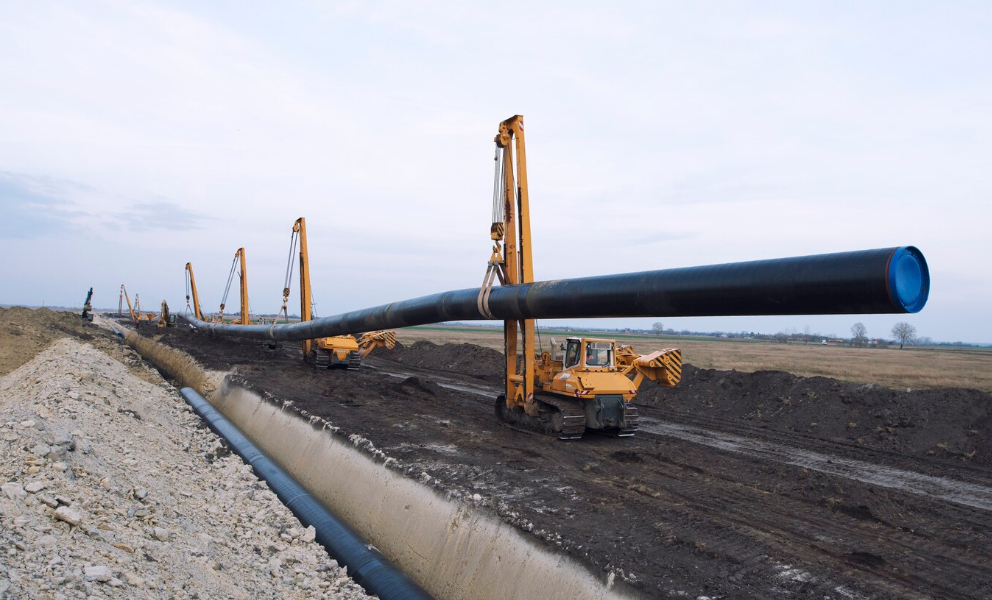$2.8 Billion Project to Transform Northern Nigeria’s Power and Industrial Capacity
In a landmark achievement for Nigeria’s energy infrastructure, the Ajaokuta-Kaduna-Kano (AKK) Gas Pipeline project has successfully crossed the River Niger, marking a critical milestone in the ongoing $2.8 billion project. This development moves the country closer to completing one of its most ambitious natural gas delivery systems, aimed at supplying 3,500 million standard cubic feet of gas per day to Northern Nigeria.
The crossing of the River Niger considered one of the project’s most challenging engineering segments—was confirmed by the Nigerian National Petroleum Company Limited (NNPCL), the lead agency overseeing the build.
The Scope of the AKK Pipeline Project
The AKK Gas Pipeline, stretching over 614 kilometers, is a vital component of the Federal Government’s Decade of Gas initiative, which seeks to reposition Nigeria from an oil-dependent economy to one driven by natural gas. The pipeline begins at Ajaokuta in Kogi State, passes through Kaduna, and terminates in Kano State, linking southern gas sources with under-served northern regions.
Funded through a public-private partnership involving NNPCL and Chinese financiers, the project is designed to:
-
Supply reliable energy for electricity generation
-
Fuel industrial clusters and manufacturing zones
-
Attract foreign and local investment in energy-intensive sectors
-
Support the establishment of compressed natural gas (CNG) stations to boost clean transportation
“Crossing the River Niger is not just a technical milestone; it’s a symbol of national integration and energy connectivity,” said Mele Kyari, Group CEO of NNPCL.
Economic and Industrial Impact
Once operational, the AKK pipeline is expected to significantly reduce Nigeria’s energy deficit, particularly in the North, where industries have long suffered from unreliable power supply. Northern states such as Kaduna, Kano, and Katsina are projected to benefit from:
-
Increased power generation capacity
-
Revitalization of textile, agro-processing, and steel industries
-
Job creation across construction, energy, and logistics sectors
-
Expanded access to cleaner fuel alternatives
According to the Ministry of Petroleum Resources, the AKK pipeline could add over $1 billion annually to GDP through improved industrial output and energy access.
Challenges and Caution
Despite the progress, the project has faced delays and budget overruns, largely due to foreign exchange constraints, insecurity along construction corridors, and supply chain issues. The NNPCL has reiterated its commitment to complete the project by 2025, but stakeholders warn that governance, transparency, and maintenance planning must be strengthened for long-term success.
Energy policy expert Dr. Salisu Ibrahim notes,
“The AKK pipeline could be transformative, but only if backed by consistent regulatory oversight and private sector involvement in downstream utilization.”
A Step Toward Energy Independence
Nigeria holds Africa’s largest proven natural gas reserves, but much of it remains underutilized. Projects like the AKK pipeline are seen as crucial to unlocking that potential—providing not just domestic energy security but also positioning Nigeria as a regional gas hub under the West African Gas Pipeline and Trans-Saharan Gas Pipeline frameworks.
Conclusion: Building the Future, One Pipeline at a Time
The successful crossing of the River Niger by the AKK Gas Pipeline is more than an engineering feat, it represents hope for a more industrialized, energy-secure Nigeria. As the project nears completion, it has the potential to bridge regional energy disparities, spur economic development, and finally turn gas wealth into widespread prosperity.
Published on Xamblog.com – Driving insight into Nigeria’s infrastructure, energy, and economic growth.
Last Updated on July 12, 2025 by kingstar





